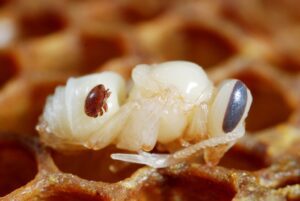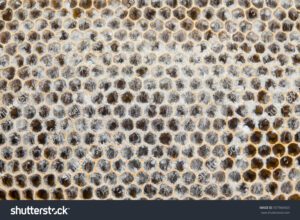Maintaining Bee Health: Medicines and Treatments in Beekeeping
In beekeeping, the use of medicines or treatments for beekeeping depends on specific health conditions and challenges faced by the hives. Here are common situations where medications or treatments may be required:
1. Varroa Mite Control:


These mites pose a significant threat to honeybee colonies worldwide, including India. Beekeepers may employ chemical treatments or integrated pest management (IPM) strategies to control its infestations.
2. Foulbrood Diseases:
American Foulbrood (AFB) and European Foulbrood (EFB) are bacterial diseases that can affect bee colonies. Antibiotic treatments may be necessary to control these diseases if diagnosed in the hive.
3. Nosema Infection:


Nosema is a fungal pathogen affecting bees’ digestive systems. Medicines like fumagillin may be used to control Nosema infection if detected.
4. Pest Control:
Measures to control pests like small hive beetles and wax moths may include chemical treatments or physical traps.
5. Antibiotics:
In some cases, beekeepers may use antibiotics to treat specific bacterial infections within the hive. However, it is crucial to exercise caution and ensure compliance with local regulations when using them.
6. Feeding Supplements:
While not constituting traditional medications, beekeepers can offer supplementary feed enriched with additives like essential oils or organic acids to bolster colony health.
In the context of using medications or treatments in beekeeping, it is essential to exercise caution and adhere to these guidelines:
- Always follow the manufacturer’s instructions and recommended dosages.
- Additionally, be mindful of local regulations and restrictions regarding the use of certain chemicals.
- Maintain comprehensive records to continually assess colony health and the effectiveness of treatments.
- Remember, in order to prioritize preventive measures, such as sustaining colony strength, practicing diligent hive management, and fostering a healthy environment, it’s best to employ treatments as a last resort
By incorporating more transition words, the article gains greater clarity and coherence.
Regular hive inspections and vigilant monitoring for disease or pest signs are crucial in proactive beekeeping. If you suspect a health issue within your bee colonies, seek guidance from local beekeeping associations, experts, or agricultural authorities for accurate diagnosis and treatment recommendations tailored to the Indian context.
Related Post:Essential Bee feeding
